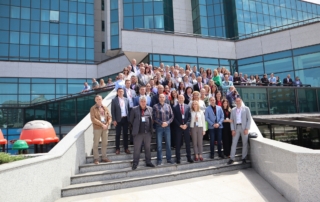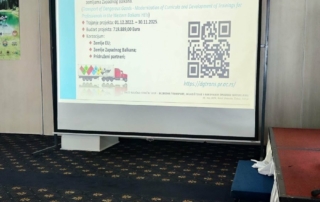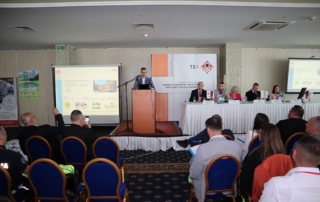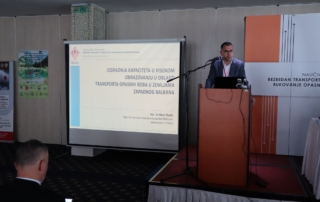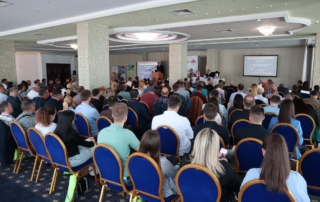On May 16, 2024, at Hotel Sloboda in Šabac, Serbia. the scientific-proffesional conference, “Safe Transport, Storage, and Handling of Hazardous Materials”, was held. The conference gathered
experts from various fields to discuss contemporary challenges and solutions related to the transport and handling of hazardous materials. This conference was organized by the Faculty of Technical
Sciences, University of Novi Sad; the Faculty of Transport and Traffic Engineering, University of East Sarajevo; the Faculty of Mechanical Engineering, University of Montenegro; and the Hazardous
Materials Cluster of Serbia. Support was provided by the Ministry of Construction, Transport, and Infrastructure of the Republic of Serbia, the Ministry of Internal Affairs of the Republic of Serbia, the
Ministry of Transport and Communications of the Republic of Srpska, the Ministry of Transport and Maritime Affairs of Montenegro, the Provincial Secretariat for Energy, Construction, and Transport, the Road Traffic Safety Agency of the Republic of Serbia, and the Chamber of Commerce of Vojvodina.
Doc. Dr. Miloš Pljakić from the Faculty of Technical Sciences in Kosovska Mitrovica delivered a presentation titled “Capacity Building in Higher Education in the Field of Transport of Dangerous Goods in the Western Balkans” In his presentation, Pljakić outlined the key points of the ERASMUS+ DGTRANS project, which focuses on improving educational programs related to the transport of dangerous goods.
The presentation highlighted the crucial role of enhancing education and practical training in the field of transport of dangerous goods as pursued by the DGTRANS ERASMUS+ project. It was clearly emphasized that the improvement of educational programs, training, and laboratory capacities will significantly contribute to increasing the safety and efficiency of dangerous goods transport. The implementation of modern technologies and training methods will not only reduce the risk of incidents but also ensure that professionals in this field are adequately equipped to tackle the challenges of dangerous goods transport. This is vital for the protection of people, property, and the environment, thereby laying the foundations for the long-term sustainability and safety of transport systems.

